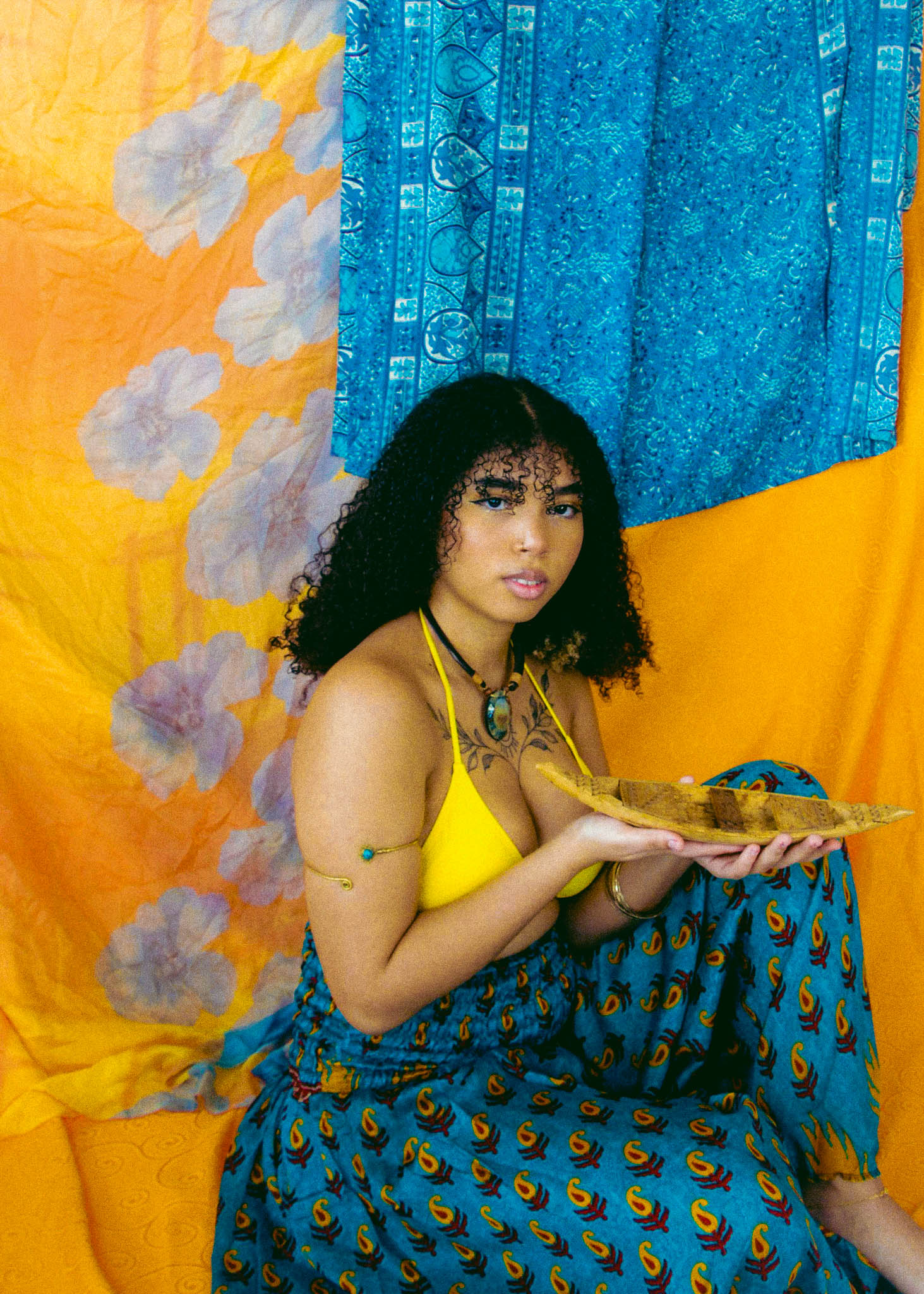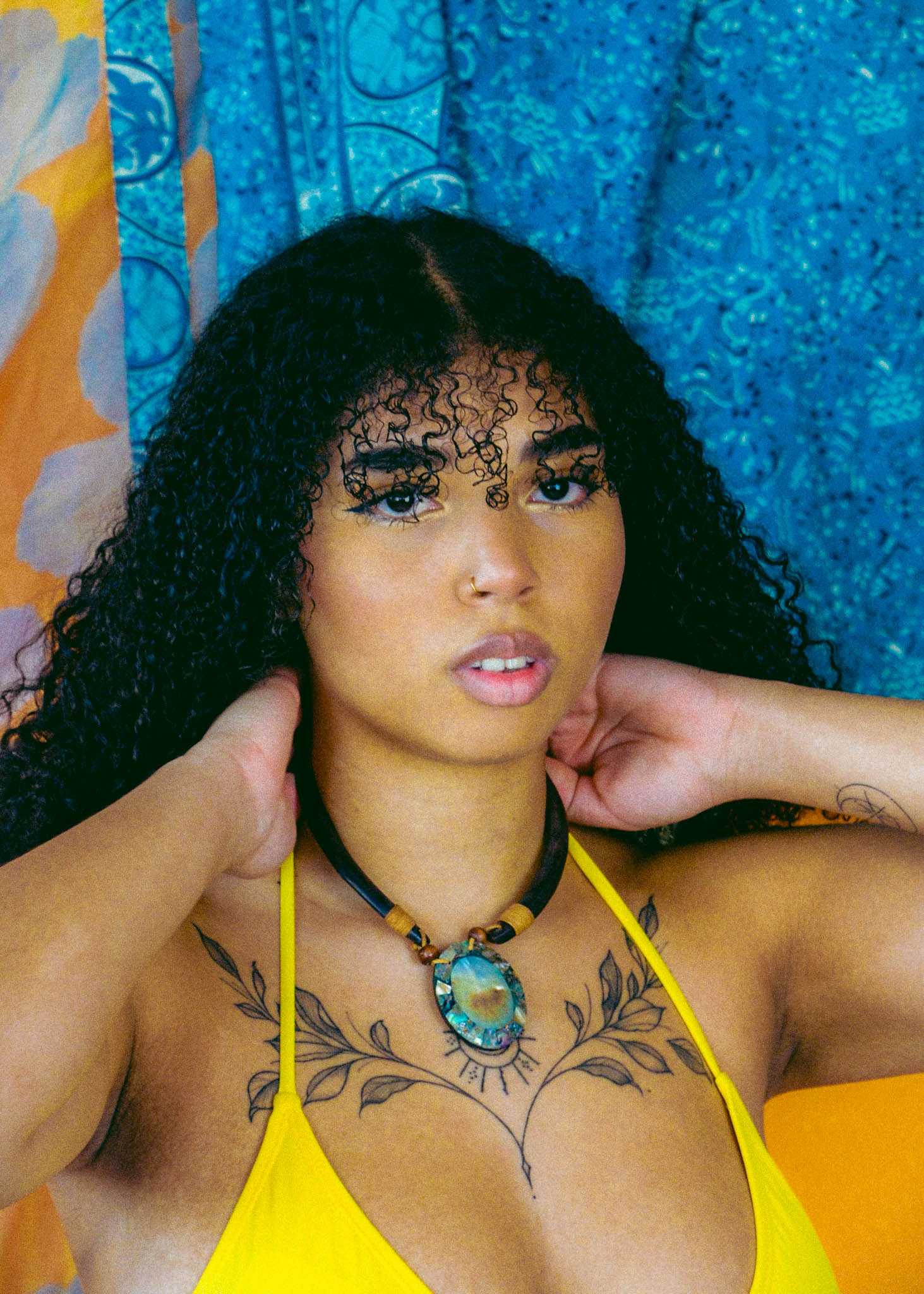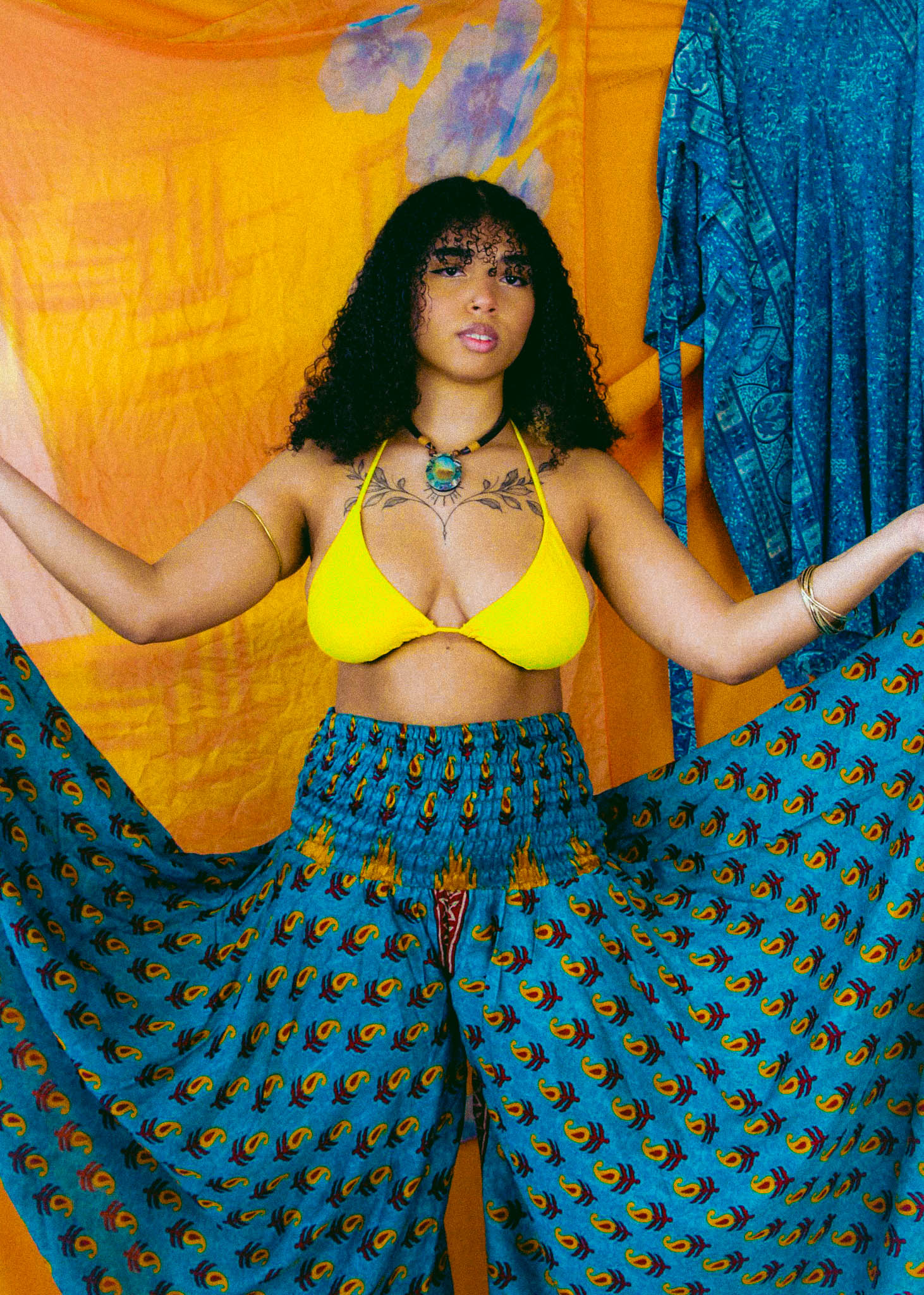For English scroll down

Pamièla maakt een reis door haar multiculturele identiteit en viert diversiteit
Pamièla is student aan de hogeschool en kwam vier jaar geleden vanuit Curaçao naar Nederland om te studeren. Haar achtergrond is heel erg divers: haar moeders kant heeft inheemse roots uit Bonaire, terwijl haar vader van Surinaamse afkomst is en een mix is van Chinees, Inheems Surinaams en Javaans bloed. Daarnaast heeft ze veel meegekregen van de Colombiaanse cultuur door haar opvoeding met haar stiefmoeder, en merkt ze ook ze Latijns-Amerikaanse invloeden heeeft meegekregen door het leven op Curaçao.
"Als je van Curacao komt, dan ben je sowieso multicultureel." De meeste mensen op Curaçao groeien op in een multiculturele omgeving, en Pamièla is nu meer gaan waarderen wat dit betekent. Ze heeft altijd haar opvoeding en cultuur als vanzelfsprekend gezien, maar nu is ze er meer over gaan leren. Ze vindt het wel moeilijk om in Nederland verbonden verbonden te blijven met haar voorouders. Daarom kijkt ze er elk jaar naar uit om Bonaire of Curaçao te bezoeken en haar familie te zien. Wel merkt ze op dat het leven op de eilanden steeds commerciëler wordt.
Met haar multiculturele identiteit, is er voor Pamièla niet één specifieke traditioneel kledingstuk dat ze draagt. Toch zorgt elk kledingstuk voor een gevoel van verbinding met haar cultuur. Ze draagt kleding waarin ze zichzelf in verbinding voelt met de natuur, de zee en de warmte van Curaçao.
Pamièla vindt kracht in familie. In alle culturen merkt ze op dat familie belangrijk is en is tegelijkertijd een deel zijn van je identiteit. “Mijn familie is verbonden met het heden, de toekomst en ook het verleden.” Ze gelooft ook dat er kracht zit in het vieren van verschillende culturen en niet alleen proberen ze gescheiden te houden. Samen kunnen er prachtige dingen worden gecreëerd.
“Ik merk dat in mijn cultuur weinig mensen durven te praten over het verleden, en daarom vind ikzelf soms ook moeilijk om het verleden onder ogen te zien.” Ondanks deze gevoelens wil Pamièla bouwen aan de toekomst, waarin niet alleen verdriet uit het verleden wordt erkend, maar ook vreugde wordt gevierd.
“Ik wil dat mensen de schoonheid van hun eigen roots ontdekken en begrijpen dat iedereen een verhaal heeft.”
Pamièla travels through her multicultural identity and celebrates diversity
Pamièla is a student at RUAS and came to the Netherlands from Curaçao four years ago to study. Her background is very diverse: her mother's side has indigenous roots from Bonaire, while her father is of Surinamese descent and his DNA is a mix of Chinese, indigenous Surinamese, and Javanese. She has also inherited a lot of Colombian culture from growing up with her stepmother, and she has also noticed Latin American influences from living in Curaçao.
"If you are from Curaçao, you are multicultural anyway". Most people in Curaçao grow up in a multicultural environment, and Pamièla has come to appreciate what that means. She used to take her upbringing and culture for granted, but now she has started to learn more about it. She finds it difficult to stay in touch with her ancestors while she is here in the Netherlands. So, she looks forward to visiting Bonaire or Curaçao every year to see her family. However, she notices that life on the islands is becoming increasingly commercialised.
With her multicultural identity, there is no one traditional garment that Pamièla wears. However, each garment creates a sense of connection to her culture. She wears clothes that make her feel connected to nature, the sea, and the warmth of Curaçao.
Pamièla finds strength in her family. Across cultures, she finds that family is important and at the same time part of your identity. "My family is connected to the present, the future and also to the past," she says. She also believes that there is strength in celebrating different cultures rather than trying to keep them separate. Beautiful things can be created together.
"I notice that in my culture few people dare to talk about the past, and that is why I sometimes find it difficult to face the past myself. Despite these feelings, Pamiela
Pamièla is a student at RUAS and came to the Netherlands from Curaçao four years ago to study. Her background is very diverse: her mother's side has indigenous roots from Bonaire, while her father is of Surinamese descent and his DNA is a mix of Chinese, indigenous Surinamese, and Javanese. She has also inherited a lot of Colombian culture from growing up with her stepmother, and she has also noticed Latin American influences from living in Curaçao.
"If you are from Curaçao, you are multicultural anyway". Most people in Curaçao grow up in a multicultural environment, and Pamièla has come to appreciate what that means. She used to take her upbringing and culture for granted, but now she has started to learn more about it. She finds it difficult to stay in touch with her ancestors while she is here in the Netherlands. So, she looks forward to visiting Bonaire or Curaçao every year to see her family. However, she notices that life on the islands is becoming increasingly commercialised.
With her multicultural identity, there is no one traditional garment that Pamièla wears. However, each garment creates a sense of connection to her culture. She wears clothes that make her feel connected to nature, the sea, and the warmth of Curaçao.
Pamièla finds strength in her family. Across cultures, she finds that family is important and at the same time part of your identity. "My family is connected to the present, the future and also to the past," she says. She also believes that there is strength in celebrating different cultures rather than trying to keep them separate. Beautiful things can be created together.
"I notice that in my culture few people dare to talk about the past, and that is why I sometimes find it difficult to face the past myself. Despite these feelings, Pamièla wants to build a future that not only acknowledges the sadness of the past but also celebrates the joy.
"I want people to discover the beauty of their roots and understand that everyone has a story to tell.

Over Woven Identities
De fotoreeks ’Woven Identities’ portretteert studenten van Hogeschool Rotterdam, Alle studenten zijn afkomstig uit landen die vroeger Nederlandse kolonies waren, denk aan Suriname, Indonesië en de ABC-eilanden. Op de foto's dragen de studenten traditionele klederdracht en een voorwerp waarmee ze hun culturele erfgoed en identiteit laten zien. Via het persoonlijke verhalen ontdek je meer over hun roots en de impact van de Nederlandse koloniale geschiedenis op hen in het hier en u. De persoonlijke portretten nemen je mee in diverse culturele achtergronden en het belang van begrip over culturele diversiteit in onze samenleving.
De ’Woven Identities’ portretten zijn ook te zien tijdens de Keti Koti expositie van 19 juni tot 3 juli op meerdere locaties.
- Concept 'Woven identities' is gemaakt door Indra de Jong.
- Edited door: Tim Sluijter & Indra de Jong.
- Foto's Eline: Malou Moy
- Ook te zien in het online Keti Koti magazine
